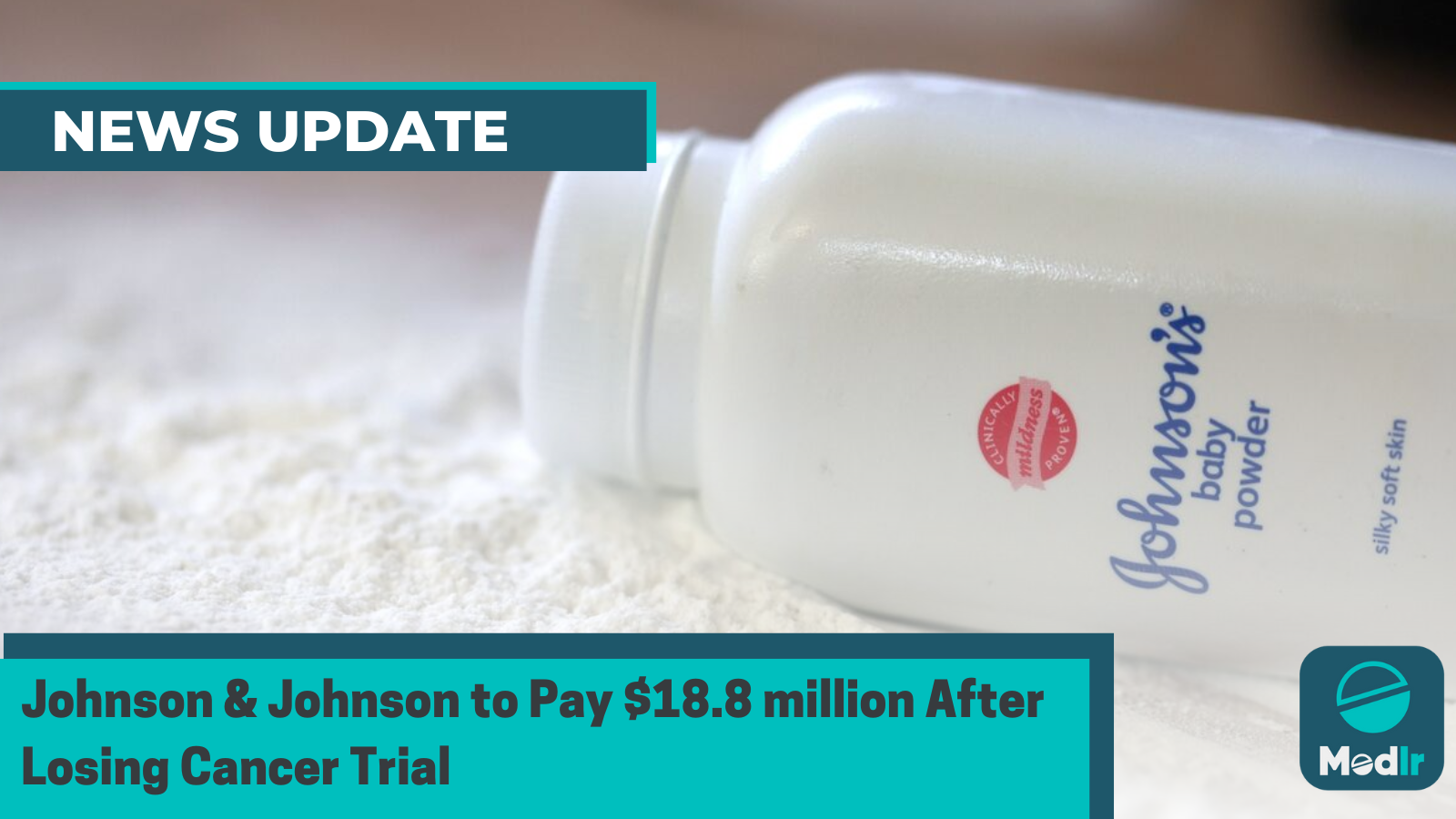Johnson & Johnson to Pay $18.8 million After Losing Cancer Trial
Written by Shaveta Arora
A $18.8M verdict against Johnson & Johnson for talc-cancer link sparks appeal. Settlements at risk as J&J faces legal challenges.

A California man has won an $18.8 million judgment against Johnson & Johnson, accusing the company's talcum-based powders of causing his cancer. This trial marks the first one in nearly two years concerning allegations that J&J deliberately hid the health risks associated with its iconic baby powder.
Jurors in an Oakland state court determined that J&J's baby powder actively contributed to Anthony Hernandez Valadez's development of mesothelioma, a cancer linked to asbestos exposure. Despite a court order to suspend all litigation, Valadez's case proceeded to trial due to his deteriorating health. This exception was made because of J&J's efforts to protect itself from talc liability through a Chapter 11 bankruptcy filing.
J&J plans to appeal the verdict, asserting that the judge's "erroneous" rulings prevented them from presenting crucial evidence to the jury. This evidence would have shown that Valadez's rare form of mesothelioma was not caused by their baby powder. Erik Haas, J&J's worldwide vice president of litigation, emphasized that decades of independent scientific evaluations have consistently confirmed the safety of Johnson's Baby Powder.
According to Haas, the verdict is incongruent with the wealth of evidence supporting the safety of their product, as well as the absence of asbestos and cancer-causing agents in Johnson's Baby Powder. He made it clear that until the bankruptcy proceeding concludes, the awarded verdict will not be paid, and it will not have any impact on the ongoing process.
The $18.8 million awarded to Valadez might complicate J&J's efforts to persuade other talc victims to agree to an $8.9 billion settlement offered within the bankruptcy case filed by its LTL Management unit. This settlement was designed to resolve all current and future lawsuits accusing J&J of knowingly selling talc-based baby powder containing asbestos.
Carl Tobias, a University of Richmond law professor specializing in mass torts, believes that the verdict could influence other plaintiffs to reject the settlement. They may perceive a higher possibility of receiving better compensation through individual trials. As a result, this development has the potential to disrupt the settlement negotiations for J&J.
Due to declining sales, Johnson & Johnson took its talc-based powders off the US and Canada markets in 2020 and substituted them with a corn-starch-based alternative. The company has pledged to eliminate all baby powders containing talcum powder from the worldwide market by the end of this year.